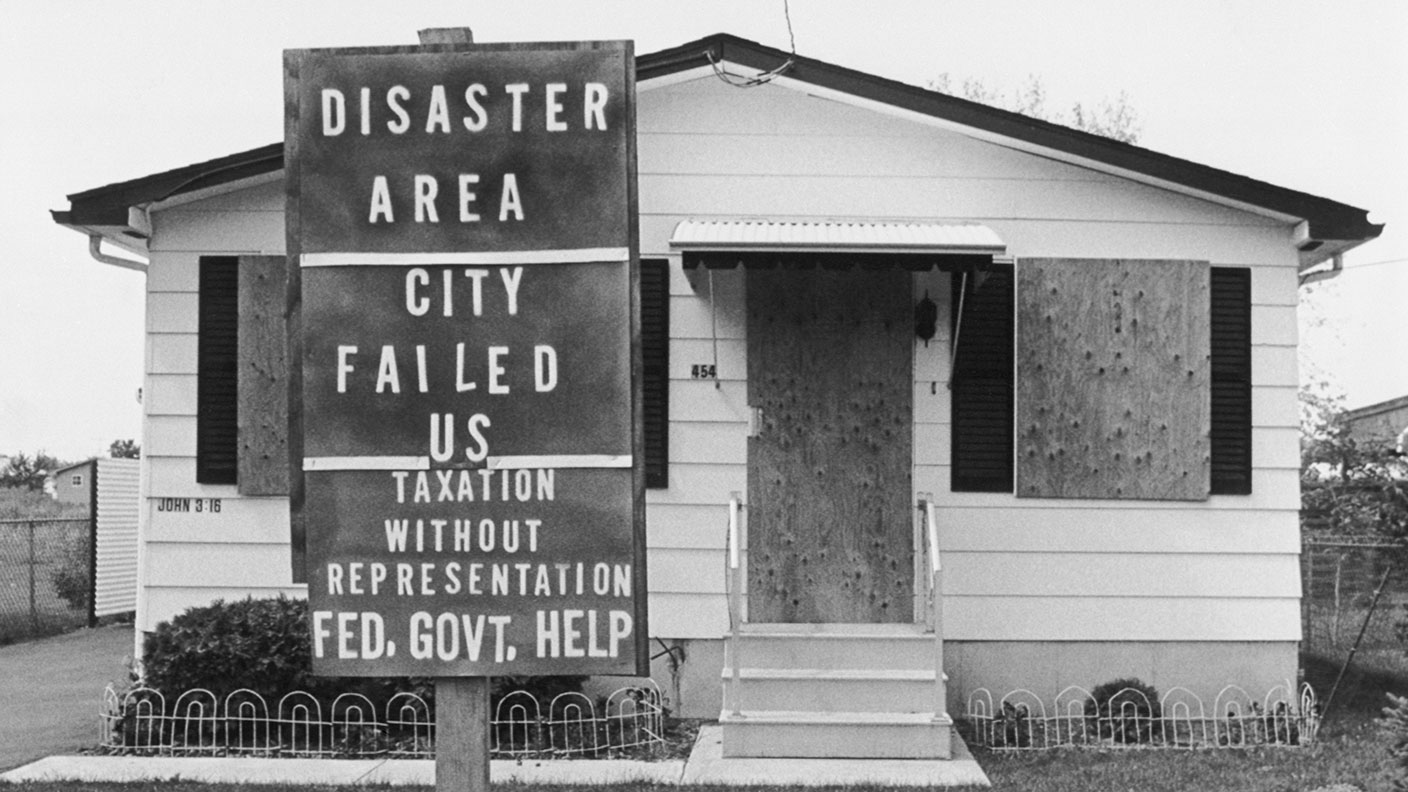7 August 1978: Love Canal declared a disaster
On this day in 1978, US president Jimmy Carter declared a Federal Emergency over contamination from toxic waste stored at the defunct Love Canal.


Get the latest financial news, insights and expert analysis from our award-winning MoneyWeek team, to help you understand what really matters when it comes to your finances.
You are now subscribed
Your newsletter sign-up was successful
Want to add more newsletters?
In the 1890s entrepreneur William Love attempted to build a canal from the Niagara River, initially to power local industries, and then to serve as the backdrop for a new township in New York. Both schemes collapsed, leaving a one-mile mini-canal. The pit was used as a dump from the 1920s and was later purchased by Hooker Chemical, which used it to store 22,000 tons of toxic waste.
In 1953, the fast-growing City of Niagara forced Hooker to sell the canal to the city for $1, with an agreement that the city would not be able to sue it for any damage. A school and housing wasthen built on the land surrounding the dump.Even during the school's construction, its architect warned that barrels of toxic waste were appearing. But the problem escalated during a very wet spring in 1972, when flooding caused the waste to spread through the ground.
By the mid-1970s the residents complained of horrible smells, pools of caustic water, a spate of birth defects and mystery child illnesses. Tests commissioned found huge levels of toxic chemicals in the water and land. In early 1978, New York State's health commissioner declared the area hazardous, recommending that 200 families be moved, and the outcry led President Jimmy Carter to declare a Federal Emergency.
Try 6 free issues of MoneyWeek today
Get unparalleled financial insight, analysis and expert opinion you can profit from.

Sign up to Money Morning
Don't miss the latest investment and personal finances news, market analysis, plus money-saving tips with our free twice-daily newsletter
Don't miss the latest investment and personal finances news, market analysis, plus money-saving tips with our free twice-daily newsletter
Around 900 families were ultimately relocated and a huge dispute arose over the liability. Regulators claimed that Hooker was negligent and did not fully disclose the amount of waste stored. Hooker (by then owned by Occidental Petroleum) claimed that the construction work caused the barrels to leak and that the 1953 sale agreement absolved it of any blame, but ended up paying $120m towards the costs.
Get the latest financial news, insights and expert analysis from our award-winning MoneyWeek team, to help you understand what really matters when it comes to your finances.

-
 Do you face ‘double whammy’ inheritance tax blow? How to lessen the impact
Do you face ‘double whammy’ inheritance tax blow? How to lessen the impactFrozen tax thresholds and pensions falling within the scope of inheritance tax will drag thousands more estates into losing their residence nil-rate band, analysis suggests
-
 Has the market misjudged Relx?
Has the market misjudged Relx?Relx shares fell on fears that AI was about to eat its lunch, but the firm remains well placed to thrive
-
 31 August 1957: the Federation of Malaya declares independence from the UK
31 August 1957: the Federation of Malaya declares independence from the UKFeatures On this day in 1957, after ten years of preparation, the Federation of Malaya became an independent nation.
-
 13 April 1960: the first satellite navigation system is launched
13 April 1960: the first satellite navigation system is launchedFeatures On this day in 1960, Nasa sent the Transit 1B satellite into orbit to provide positioning for the US Navy’s fleet of Polaris ballistic missile submarines.
-
 9 April 1838: National Gallery opens in Trafalgar Square
9 April 1838: National Gallery opens in Trafalgar SquareFeatures On this day in 1838, William Wilkins’ new National Gallery building in Trafalgar Square opened to the public.
-
3 March 1962: British Antarctic Territory is created
Features On this day in 1962, Britain formed the British Antarctic Territory administered from the Falkland Islands.
-
10 March 2000: the dotcom bubble peaks
Features Tech mania fanned by the dawning of the internet age inflated the dotcom bubble to maximum extent, on this day in 2000.
-
9 March 1776: Adam Smith publishes 'The Wealth of Nations'
Features On this day in 1776, Adam Smith, the “father of modern economics”, published his hugely influential book The Wealth of Nations.
-
 8 March 1817: the New York Stock Exchange is formed
8 March 1817: the New York Stock Exchange is formedFeatures On this day in 1817, a group of brokers moved out of a New York coffee house to form what would become the biggest stock exchange in the world.
-
7 March 1969: Queen Elizabeth II officially opens the Victoria Line
Features On this day in 1969, Queen Elizabeth II took only her second trip on the tube to officially open the underground’s newest line – the Victoria Line.